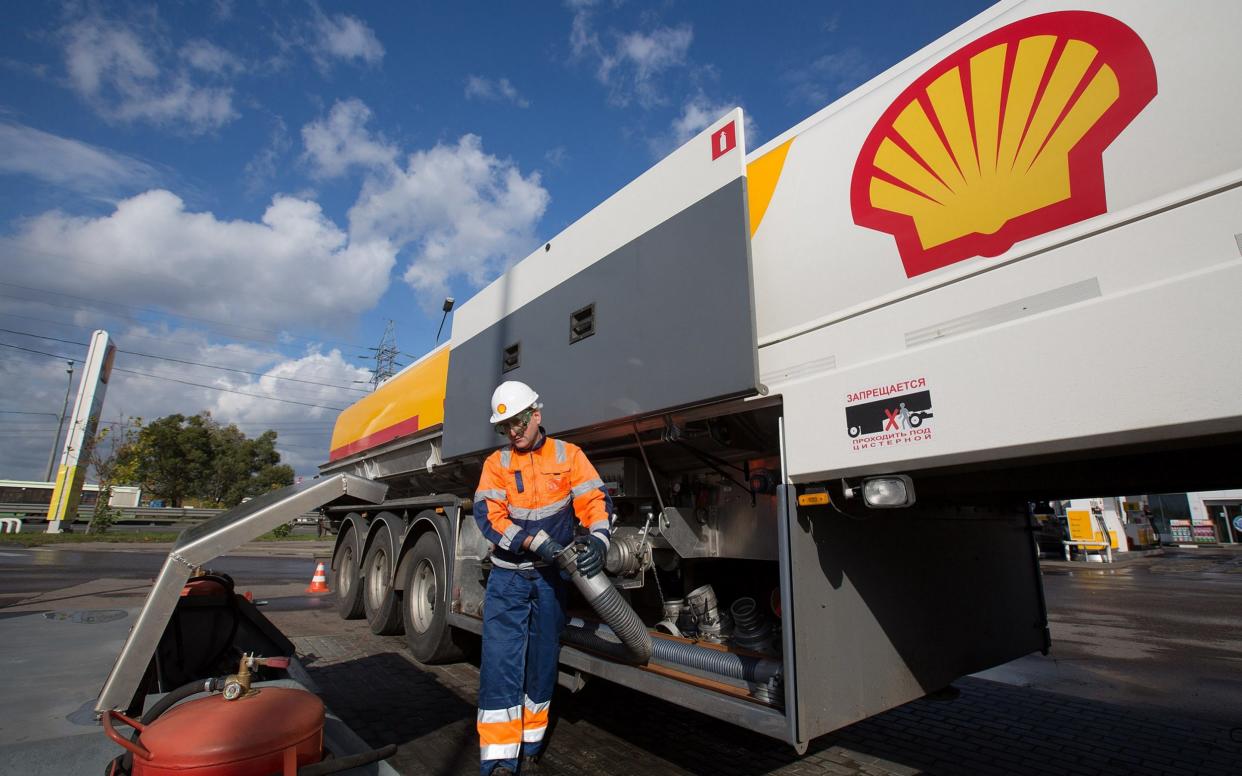Shell shares sink after cutting dividend for first time since 1945

Shell shares sank after the oil giant slashed its dividend for the first time since the Second World War and experts warned the coronavirus crisis could spell the end of fossil fuels.
The biggest dividend payer on the FTSE 100 told shareholders including thousands of pension funds that their quarterly payouts would be cut from 47 to 16 US cents a share following the collapse in oil prices this year.
Shell's B shares fell 11.4pc to £12.86, while the A shares dipped 10.8pc to £13.25.
Bosses are fighting to shore up the finance of the company amid the worst crisis in the oil market's history after Covid-19 lockdowns wrecked global demand.
Such is the scale of the disaster that on Thursday, the world's foremost energy authority watchdog warned that the industry will be permanently changed.
Renewable power such as solar and wind might ultimately wipe out fossil fuels in the wake of Covid-19, the International Energy Agency (IEA) said in a report.
The pandemic has triggered a plunge in global oil prices to record lows, with the US West Texas Intermediate benchmark even briefly falling into uncharted negative territory as storage space ran out.
It pushed Shell's profits for the first three months of the year down 46pc to $2.9bn compared with the same period in 2019.
Ben van Beurden, chief executive, said: "Under extremely challenging conditions ... we are taking further prudent steps to bolster our resilience, underpin the strength of our balance sheet and support the long-term value creation of Shell."
It marks the first time since 1945 that the company has cut shareholder payments. Shell's dividend is the second largest in the world, and - along with BP - it accounted for 24pc of the £75bn paid out by FTSE 100 companies last year.
Mr van Beurden spoke at length about the gravity of the situation that the oil industry was facing.
Echoing the IEA's comments, he said it was hard to know if oil demand would ever return to levels seen in 2019 and energy consumption will likely change forever.
The pandemic may accelerate the transition to renewable energy, Mr van Beurden said, adding that he will try to spare the company's low carbon division from the brunt of cost cuts.
Shell also reported that activity at its refining business had been slashed by up to 40pc in response to the demand shock, while predicting that sales at its petrol stations could fall 54pc in the second quarter because motorists across the West have been ordered to stay at home.
Lydia Rainforth, an oil and gas analyst at Barclays, said: "The decision to re-set the dividend reflects the potential the company sees of a prolonged period of uncertainty, weaker commodity prices and higher volatility."
Nevertheless, the company's net profit was nearly 30pc higher than analysts' estimates, with a particularly strong performance from the integrated gas business.
Stuart Joyner, an energy analyst at Redburn, said: "The dividend cut ... [is] clearly much worse than bulls wanted or expected."
However, it is thought that some senior figures within Shell have been hoping for a reason to cut the dividend as they try to improve its finances. Shell's debts have climbed from $1bn (£790m) in 2005 to $73bn now, while in the same period it has doled out $153bn in dividends and spent $48bn on share buybacks.
By trimming its dividend, Mr Joyner said Shell had raised the prospect of other oil majors such as arch rival BP doing the same.
On Tuesday BP said that its dividend would remain intact.

